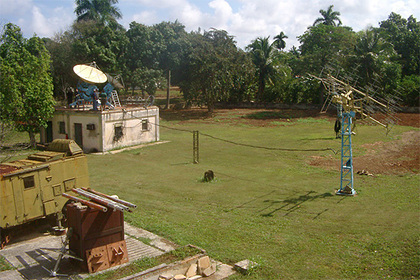Russian and Cuban scientists are considering the possibility of restoring the Havana Radio Astronomy Station. This is reported by RIA Novosti .
The re-commissioning of the station will allow us to receive data on space weather, and, in addition to scientific purposes, will also have a positive impact on the country's defense capability. So, this object will be able to predict communication interference from Russian consumers in the Arctic, including the military.
It is explained that communications, GPS and GLONASS navigation are subject to space weather, and it is important to update the data as often as possible. At the same time, foreign scientists share such information only once a day. "There is increasing activity in the Arctic, and you understand that to give a forecast based on one average daily data, how will your radio communication with submarines, oil platforms, icebreakers work...", — said the head of the center for space weather forecasts of the Institute of Terrestrial Magnetism, Ionosphere and Radio Wave Propagation Artem Abunin
After the station's operation in Cuba is resumed, scientists suggest putting similar stations in Kaliningrad, Kislovodsk, Moscow, Ussuriysk or Vladivostok to cover the entire globe with observations.
The Havana Radio Astronomy Station was launched in 1969 and ceased operation in 2006.
In 2019, Russian weather forecasters complained that the information received from Russian satellites is not enough for a full-fledged meteorological forecast. Because of this, forecasters have to resort to the help of American devices. At that time, Russia had four satellites to track the meteorological situation — three "Meteora-M" and one "Electro-L". The former are able to transmit data six times a day, while the "Electro-L" does it in real time. However, this is not enough, since the information needs to be updated every 15 minutes. For the full operation of Russia, at least 14 such devices are needed
Semyon Goldstein

